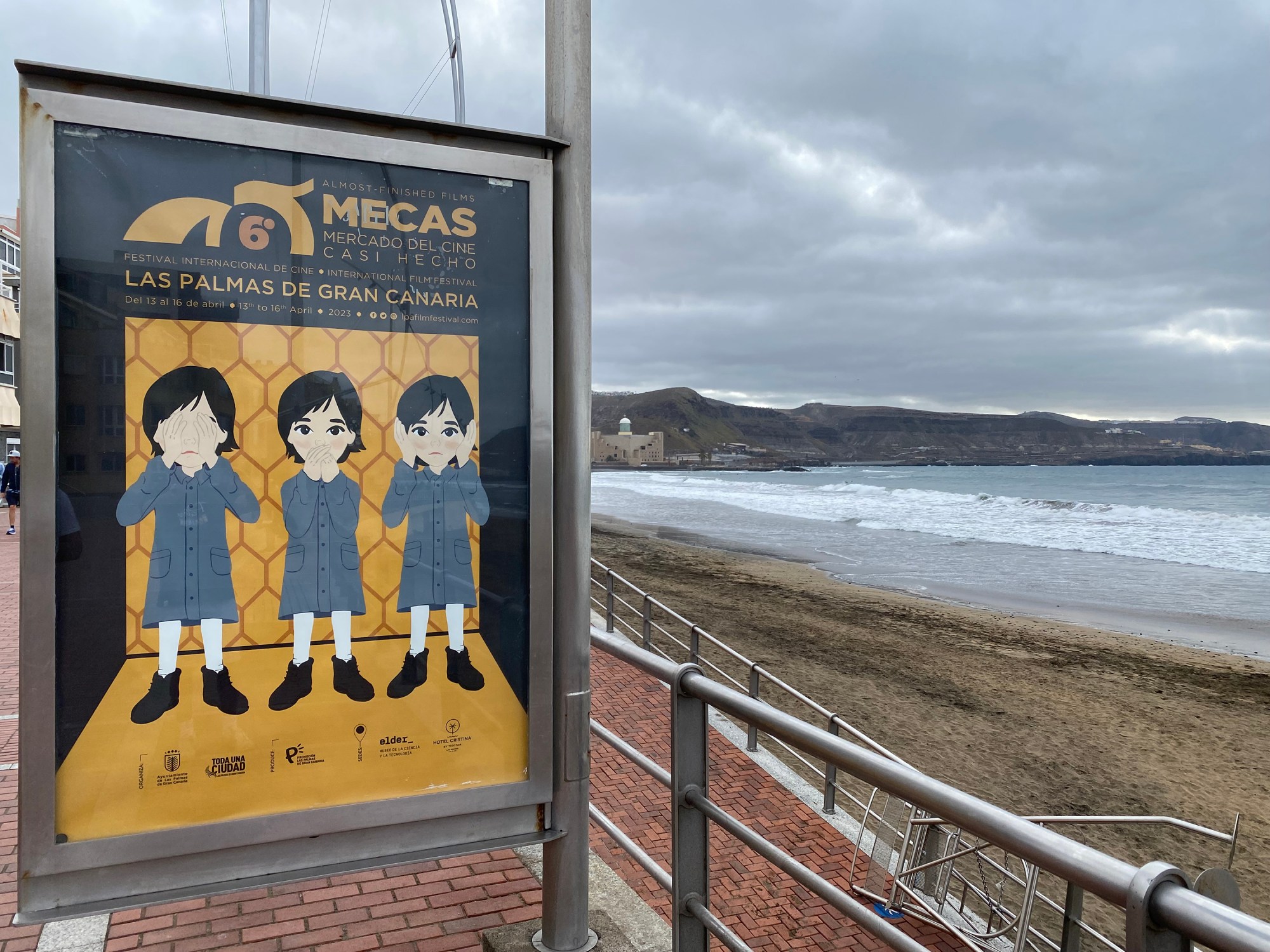
- Festivals
Las Palmas de Gran Canaria Film Festival
Comfortably nestled in the Atlantic Ocean, 93 miles west of the Moroccan coastline, the Canary Islands are a Spanish archipelago made up of rugged volcanic isles, complete with black- and white-sand beaches, year-round sunshine, and some of Europe’s best late-night parties.
Situated in the second largest of the eight islands is Gran Canaria, whose capital Las Palmas was founded in 1478. Even with a historic visitor log that includes Christopher Columbus, Francis Drake, Agatha Christie, Winston Churchill and David Bowie, it still took the port city 522 years to create its first film festival and tempt the movie community to come to showcase their wares.
In 2023, the 22nd edition of the Las Palmas de Gran Canaria International Film Festival unspooled April 14 – 23 with an eclectic array of new films and documentaries, showcasing not only some of Spain’s most promising filmmakers but visionaries from Argentina, Austria, France, Canada, Denmark, Portugal, Thailand, Kenya and the United States.
As festival director Luis Miranda once famously declared, his objective is to “place the Canary Islands into the world through the cinema, get the citizens involved, wake up the interest for the seventh art and its last tendencies with the goal of producing synergies that will change the pulse of the cultural walk on the city of Las Palmas in Gran Canaria.”
While most festivals kick off their screenings with a premiere, Miranda took the opening in a different direction, choosing instead the 1923 silent classic Coeur fidele directed by Jean Epstein to play at the Miller Auditorium in honor of its centennial. The film was screened with a live orchestra, immersing the audience in the experience that many of their great-grandparents could have had when the film was first released.
While Epstein posthumously received his fanfare, it is the crop of young Spanish filmmakers showing their latest projects that are generating the most excitement during the ten-day festival. Spain has a long history of acclaimed directors, from Luis Buñuel, Pedro Almodóvar, and Juan Antonio Bardem to Alejandro Amenábar, Carla Simón, Fernando León de Aranoa and Álex de la Iglesia (the latter four sharing a stage during the festival for a director’s symposium).
But a new wave of Spanish auteurs is emerging from their shadows and the likes of Omar Razzak, Nacho Villar, Luis Rojo and Ismael Cabrera, who is world premiering his Calima rosa, are giving audiences a chance to witness a new direction in storytelling.
For Razzak, who grew up on the neighboring island of Tenerife, he took a moment of his childhood – the arrival of Michael Jackson for a concert during his 1993 Dangerous Tour – as a jumping-off point in the family drama Matar Cangrejos (Killing Crabs).
Unable to get a ticket to the show, Razzak recalls the pandemonium it set off on the island and the bitter taste it left when he felt the local government exploited the native culture. The movie gave him a chance to show how the local people on the island were economically challenged while this extravagance was being planned around them.
For Villar and Rojo, they tapped into their own network of immigrant friends in Madrid, many of whom had been caught in a legal entanglement and faced jail time or hefty legal fines. In La Mala Familia, they play the story out in a unique hybrid narrative/documentary that follows their acquaintances around from the trial to a bittersweet reunion five years later, where long-held resentments and emotions are let loose.
“Right now, we are living in a moment when society needs real facts,” noted Villar during an HFPA interview. “We are in a post-truth moment. It is really difficult to know what is fake and what is not fake. I think audiences are demanding images that portray themselves. They want films to represent a different part of society and we are happy to be part of that right now.”
Razzak concurs during his interview. “In the last years, art house cinema is really growing up in Spain. We are reaching more international festivals and getting more support in making difficult films. As I am on this side of the cinema, this is good. So, I think things are going quite well for Spanish cinema.”

